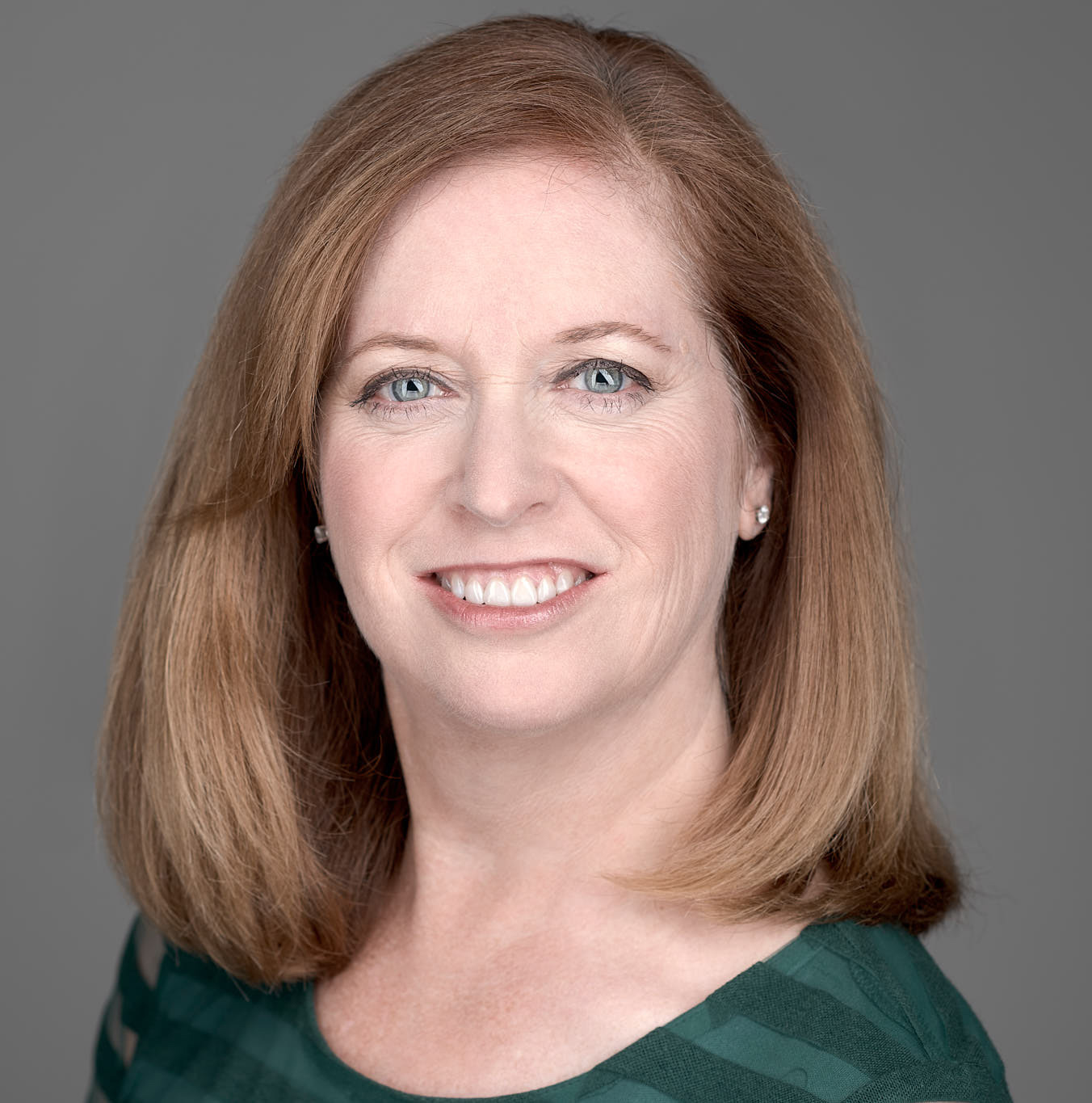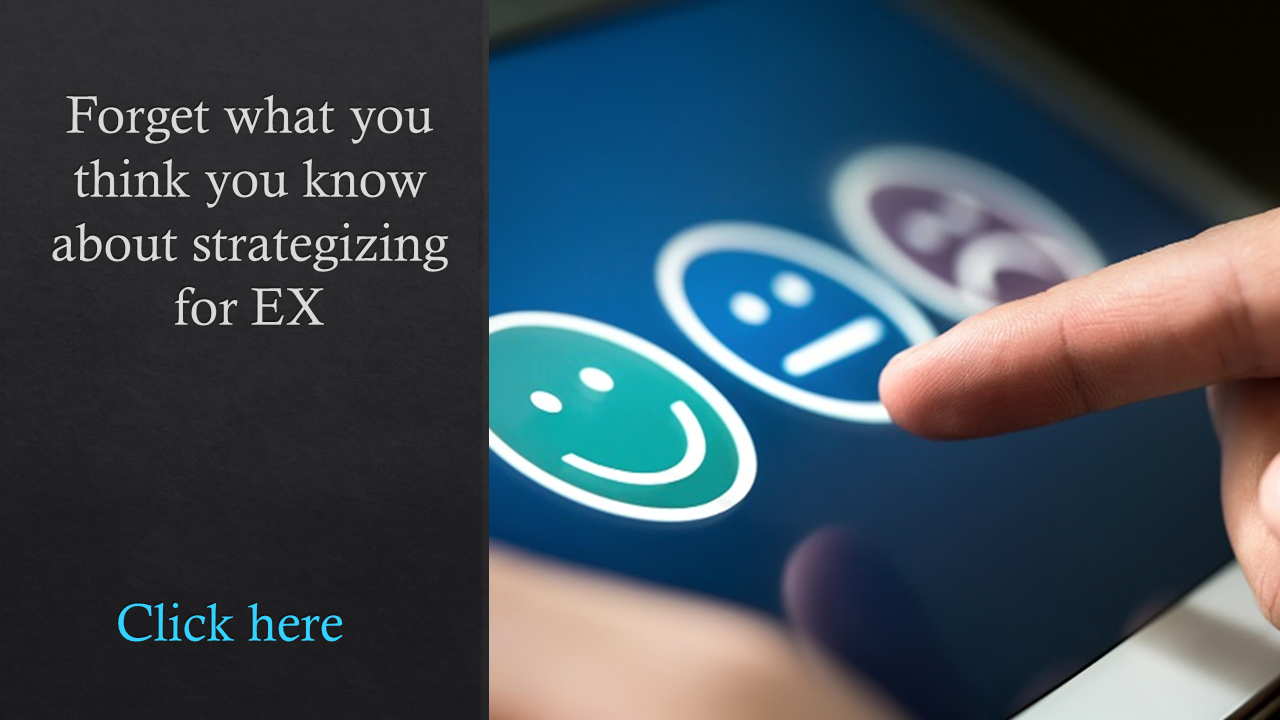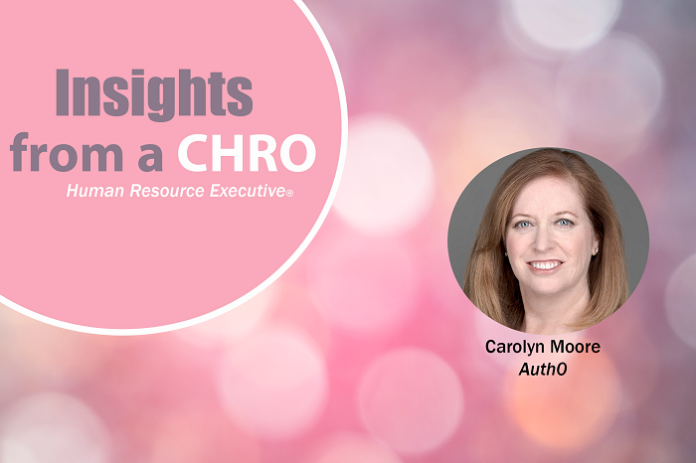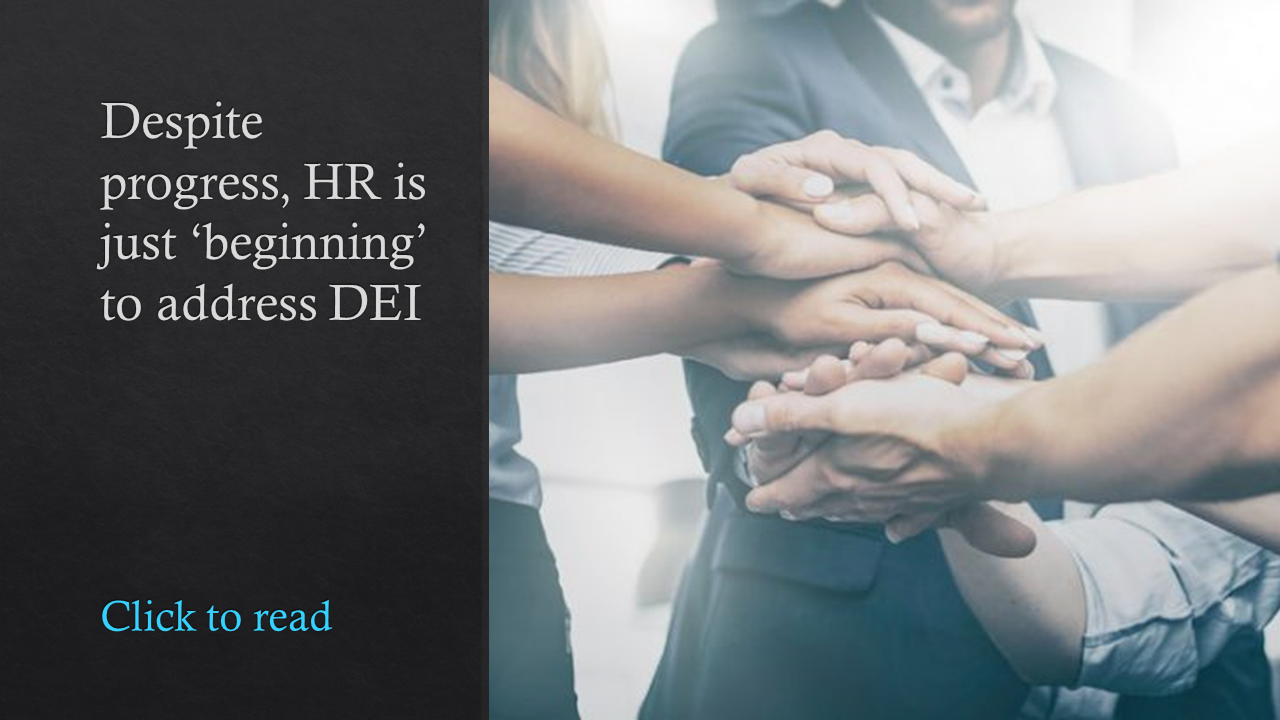When identity security company Auth0 was founded in 2013, it was with the understanding that it would be a “remote-centric” organization–with about 60% of employees working remotely. Seven years later, as the pandemic hit, the organization drew on the lessons it learned from that model to create a fully remote workforce, which it will continue after the pandemic.
“We have found this freedom to work on your own terms allows for greater flexibility, productivity and work/life balance,” says Carolyn Moore, senior vice president of people at Auth0.
Employing a globally remote workforce also takes intentional design, she adds. Auth0 relies heavily on tools like Zoom and Slack, focusing on asynchronous communication and clearly outlined tasks and goals.
“Teams have to develop trust and empathy in order to communicate effectively in a remote or hybrid setting,” she says.
Moore–who joined the organization in September and previously held HR leadership roles at Mercedes-Benz, Apple and Samsung Electronics, among others–recently shared what Auth0 has learned from working remote, both before and during the pandemic.
HRE: Despite having already been largely remote, were there any shifts you made to how and where work gets done in light of the pandemic?

Moore: At Auth0, we’ve always had a very strong remote culture, but in the wake of the pandemic, we had a heightened concern for employee wellbeing and the most effective ways in which we can support it. We made sure that all of our employees continued to feel supported and connected regardless of where they’re working. We hosted (and continue to host) fun and educational digital activities such as trivia, health and wellbeing workshops, and much more. We also instituted more flexible working schedules, from no-meeting Fridays to designating the U.S. Thanksgiving week as a global company holiday for rest and recovery.
Additionally, empathy has always been a huge priority and focus for us. It is important to be diligent in connecting with employees and proactive in asking team members, “How can I help make this a great experience for you?” to better understand your team and get critical information while showing support and empathy–important management characteristics, especially now. Using assessments such as the DiSC or Birkman can also uncover these preferences if you have the time or the budget to make use of them. The key is to understand how each individual feels motivated and engaged.
See also: Why a ‘virtual mindset’ is essential to your post-COVID success
HRE: Once the pandemic subsides, what will be your top HR priority?
Moore: The past year has not been easy, and we all have learned a lot from our experiences. One of the most significant things the pandemic has reinforced is the importance of employee wellbeing and the essential need for empathy and understanding in the workplace. Auth0’s emphasis on employee health and wellness is consistent with who we are and is critical to our success. (Right now), our team is continuing to look for ways to improve team health and wellness.
In addition to employee wellness, one of our top priorities is DEI. We recently hired our first Head of Diversity, Equity and Inclusion, Natalie Hausia-Haugen, who will be integral in further developing Auth0’s culture of inclusion and belonging. The empathy our team has continued to develop during the pandemic will be something that is everlasting at Auth0.
HRE: What is your assessment of DE&I progress in the tech industry? Where is there the most room for improvement?
Moore: Employees and consumers are no longer satisfied with companies (that) simply ‘do no harm’. In 2021, there is a clear expectation of companies to make an impact and be involved in the change. Plus, DEI positively impacts an organization’s bottom line. While there is still a lot of work to be done to DEI in the tech industry, now is the time for organizations and DEI leaders to step up and make bold moves to push the industry forward.
One of the biggest challenges I see within the industry is how to formalize DEI efforts. Since “formal” efforts are relatively new in the business world, there is still a lot to learn, teach, try and let take root before systemic change can happen. The biggest risk I have seen from this is folks can get discouraged and give up when results are not good the first time or fast enough. Consistency and accountability are key in this work.
Related: 3 remote work lessons Zoom is building into its post-pandemic plans
HRE: How have you seen the HR role itself evolve during your time in the industry?
Moore: In recent years, the industry has shifted to have an increased focus on understanding on how we can create healthier workplaces and heightened value on the humans at work. This means truly learning about employees’ needs through data and analytics, which can be sourced by things like employee surveys. Work/life balance is in the forefront of conversation around healthier workplaces and is now something that is taken into deeper consideration than in the past. If this pandemic has taught us anything, it has been to realize how important it is to take care of our mental health and to be aware of how others are doing around us.
With the increased value on employees’ lives, it makes sense that we’ve witnessed a spike in the popularity of remote work, even pre-COVID. Although several companies approached the sudden shift to remote work as temporary in the wake of the pandemic, Auth0 and many other companies realized its power early. It’s now evident that remote work is the new reality. I look forward to watching this trend take off more widely as companies realize how flexibility with employees can make for an improved workplace culture.
 HRE: What is the best piece of HR advice you’ve ever gotten (or given)?
HRE: What is the best piece of HR advice you’ve ever gotten (or given)?
Moore: Don’t just hear … listen. Take it all in and truly do your best to understand the situation and feelings of everyone. I learned this advice from my grandmother at a really young age and it has directed me through my entire career, making me an impactful leader. Listening makes employees feel heard and understood, making for overall happier and more engaged employees. At Auth0, we utilize company-wide surveys to get hard data on employees’ feelings, thoughts, wants and needs. The key to making the most of these surveys is to take the responses in and make actionable changes to coincide.
HRE: I understand you’re pursuing a sommelier education; what encouraged you to follow that route?
Moore: I love to travel the world (when able) and connect with different cultures and people to really understand their unique experiences. Sometimes my travels are solo or just off the beaten path (and never on a structured tour). When learning and educating myself on a new culture, part of my experience is delving into the local food and wine. If wherever I am in the world produces wine, I make it a priority to visit their winery. This curiosity turned into a passion, which started my journey to pursue my sommelier education. It’s always important to have new passions and always be learning new things–I find it keeps life fresh.
Click here to read more Insights from a CHRO.





